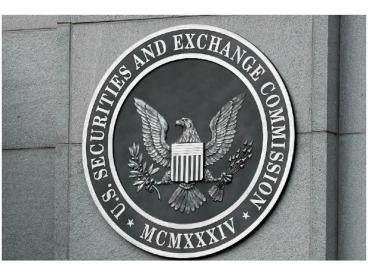The NYU Pollack Center for Law and Business and Cornerstone Research recently released a study entitled “SEC Enforcement Activity Against Public Company Defendants,” which analyzed enforcement trends between 2010 and 2015. The study contains some interesting data points related to SEC enforcement, concerning both public and non-public entities, and particularly relating to the SEC’s use of its own administrative court over the past several years:
- The number of SEC enforcement actions continues to rise. The total number of actions rose from 681 in 2010 to 807 in 2015.
- The increase in total actions has been fueled by a record number of independent actions, while the number of follow-on actions has decreased. (Follow-on actions are those used to impose additional sanctions against individuals, such as bars from practicing, based on prior litigated misconduct.) In 2015, independent actions comprised 63% of all actions filed, up from 51% just two years ago.
- The SEC has dramatically increased its use of its own administrative court, and that forum now represents the Commission’s venue of choice for enforcement actions, particularly against public company defendants, and even as constitutional challenges to SEC in-house actions continue to grow. Between 2010 and 2013, the SEC brought more than 65% of its actions against public company defendants in civil court; by 2015, however, 76% of similar actions were filed in the SEC’s administrative court. This dramatic shift followed the passage of the Dodd-Frank Act, which enabled the SEC to seek monetary penalties in administrative proceedings just as it would in a civil action. In essence, this has allowed the SEC to choose to use its “home” forum for the same cases that it would have previously filed in federal court.
- The shift in enforcement venue has also led to a shift in how penalties and disgorgements are imposed. For example, in 2010, actions in which penalties and disgorgements of $100 million or more were imposed against public companies were all civil court. In contrast, between 2013 and 2015, actions involving similarly-sized penalties and disgorgements were primarily imposed in administrative proceedings.
- The vast majority of public company defendants settle concurrently with the filing of the action, particularly in the case of administrative actions. Moreover, a recent disparity in concurrent settlements across venues coincides with the SEC’s expanded use of administrative proceedings. Whereas in 2010 the proportion of public company defendants with concurrent settlements was approximately the same in both civil actions and administrative proceedings, now the vast majority of administrative proceedings have concurrent settlements (including, in some years, 100% of such actions). In contrast, the fraction of concurrent settlements in civil actions has generally decreased over time.
The study shows clearly (particularly with respect to public company defendants) that the SEC is using its own administrative court more frequently, and for larger cases, and is settling those cases at a higher rate, than ever before. Whether that trend will continue remains to be seen, as defendants continue to mount Constitutional challenges to the SEC’s administrative proceedings. For its part, the SEC has recently proposed changes to its Rules of Practice governing administrative proceedings, with the aim of “modernizing” the rules for administrative proceedings; among other things, the proposed changes would adjust the timing of hearings and other deadlines, and provide parties with the ability to use depositions and other discovery tools. With many commentators questioning the value of these changes, as well as the Constitutional grounds for the appointment of administrative law judges, the debate over the SEC’s administrative process promises to continue.
The full NYU/Cornerstone report can be found here.



 i
i

